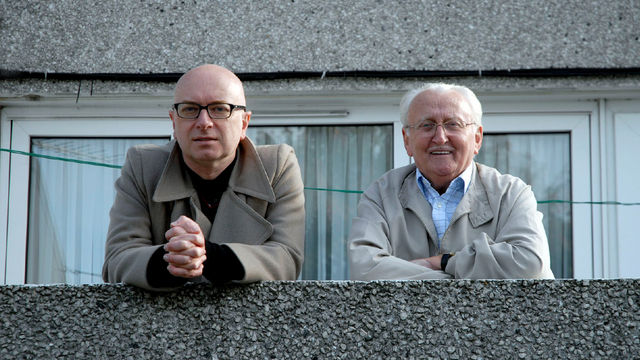Saturday, 16 April 2011
The Great Estate: The Rise and Fall of the Council House
Journalist Michael Collins (left) presented a programme in BBC4 this week about the history of council housing in the UK as part of a wider series about housing.
The hour-long programme provides a good introduction to the history of council housing - from the very first estate in Shoreditch, East London - the Boundary Estate, to the sprawling Thamesmeade and Heygate Estates built later on.
Starting very optimistically, "This was the modern world and it was ours for the taking", Collins shows how the first phase of post-war housing was embraced by the "aspiring" working classes. The government was subsidising the construction and councils were imposing stringent rules and regulations for tenants.
Windows must be cleaned once a week, you can hang your washing in the garden but no other personal goods must be displayed. And more bizarrely - lay linoleum flooring within only one foot of every wall. One resident says: "I took pride in where I lived, don't think that happens so much today."
Councils in larger cities went on to build increasingly denser developments of flats and maisonettes, clearing slums to make way for the Smithson-inspired Streets in the Sky concept.
Collins fails to get to the bottom of what caused the vilification of council housing as we knew it in the 1900's through to today. He reasons that councils are partly to blame for widening the criteria of those eligible for council housing and of course the well-rehearsed argument of the Margaret Thatcher-inspired Right-to-Buy scheme.
The programme ends on a more sombre note that it started. Collins warns that the coalition government's plans to make tenants re-apply for their homes every two years, with people eventually being asked to move out if they are earning enough money, could lead to the further decline of estates.
It is definitely worth watching, if not only for its inspired use of Kraftwerk .
Watch the programme on BBC iPlayer here.

"Collins fails to get to the bottom of what caused the vilification of council housing as we knew it in the 1900's through to today. He reasons that councils are partly to blame for widening the criteria of those eligible for council housing and of course the well-rehearsed argument of the Margaret Thatcher-inspired Right-to-Buy scheme."
ReplyDeleteI disagree with you. It was *precisely* the interaction of these two factors that created the sink estates now being "regenerated" across London.
It could well be argued that had RTB & the change in the allocation policies not happened that the estates would not have suffered the decline they have.
There are other factors but they are the two main ones.